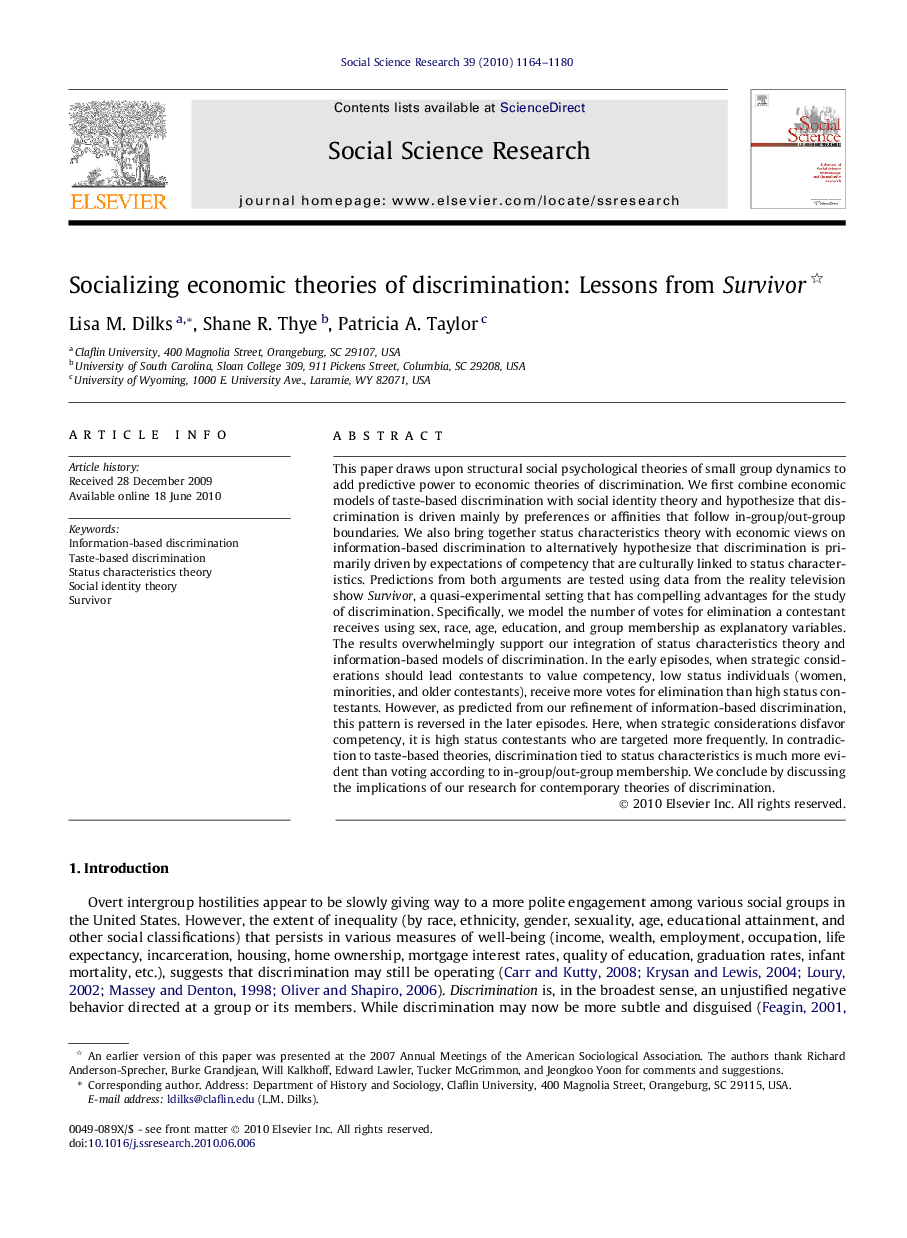| کد مقاله | کد نشریه | سال انتشار | مقاله انگلیسی | نسخه تمام متن |
|---|---|---|---|---|
| 956182 | 928314 | 2010 | 17 صفحه PDF | دانلود رایگان |

This paper draws upon structural social psychological theories of small group dynamics to add predictive power to economic theories of discrimination. We first combine economic models of taste-based discrimination with social identity theory and hypothesize that discrimination is driven mainly by preferences or affinities that follow in-group/out-group boundaries. We also bring together status characteristics theory with economic views on information-based discrimination to alternatively hypothesize that discrimination is primarily driven by expectations of competency that are culturally linked to status characteristics. Predictions from both arguments are tested using data from the reality television show Survivor, a quasi-experimental setting that has compelling advantages for the study of discrimination. Specifically, we model the number of votes for elimination a contestant receives using sex, race, age, education, and group membership as explanatory variables. The results overwhelmingly support our integration of status characteristics theory and information-based models of discrimination. In the early episodes, when strategic considerations should lead contestants to value competency, low status individuals (women, minorities, and older contestants), receive more votes for elimination than high status contestants. However, as predicted from our refinement of information-based discrimination, this pattern is reversed in the later episodes. Here, when strategic considerations disfavor competency, it is high status contestants who are targeted more frequently. In contradiction to taste-based theories, discrimination tied to status characteristics is much more evident than voting according to in-group/out-group membership. We conclude by discussing the implications of our research for contemporary theories of discrimination.
Journal: Social Science Research - Volume 39, Issue 6, November 2010, Pages 1164–1180